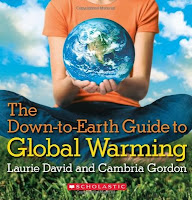
My first "
eco-post" was inspired by the term "
eco-elitist" that I had just read about. It's true some people can take this whole green thing quite seriously and I'm sure it upsets people to let go of their comforts and habits. I get it. But being more aware of your impact on the environment is a good thing and rewarding those who have fully embraced it (
eg. parking spaces for hybrid cars only) is also a good thing. So, in my opinion being a
eco-conscience is also a good thing and if that makes me an
eco-elitist and if that is meant to be a derogatory word than so be it- sign me up! Every Tuesday, I'm going to post more tips in my newly created "The Eco-elitist" series. It should be fun and hopefully helpful (for me too). Only 2 tips this week but big ones.
1.
Buy local- this is the best time to bring this up as it is nearing Farmer's Market season on the East Coast. When you buy local you are- supporting local farmers in your area (that's a good thing, right?), you are saving on the gas that is used (and the carbon dioxide that is released) when food is trucked or flown to the place where it is sold. And even better- you are buying food that is in season which tastes better and is better for you. Taking a child to a Farmer's Market is a great way to teach children about where our food comes from (it's not just from a store) and to appreciate good, healthy food. The best way to demonstrate this is to create a vegetable garden and let your children be involved in the
maintenance of it. I know this isn't possible for everyone especially if you live in a city. I don't live in the city I know it's hard to find the time for such a big project! Look, I'm not perfect - I still buy bananas and avocados which cannot be purchased where I live and I buy berries out of season because they are a staple in our house but when I can I try to buy locally. Here are some other good reasons:
http://www.sconnect.org/thinklocal/why/
Also, if you don't know where the local Farmer's Markets are, you can try this site, simply type in your address and they will give you a list.
http://www.eatlocalchallenge.com/2009/03/culinate-farmers-market-finder-tool.htmlLastly, if you really love to cook and love fresh food, join a Farmer's co-op. For a yearly fee, they will deliver their "harvest" of fruit, vegetables and sometimes their meat and dairy. Check out this site:
http://www.localharvest.org/food-coops/The importance of this way of eating really became evident to me when I traveled to Italy. In almost all of the regions of Italy, it is customary to eat what's in season. You just don't have fresh fruit in the winter. You have dried fruit. You don't order a
Caprese salad (tomatoes,
mozzarella and basil) in the winter- it's just not good and they are so right! Read Francis
Mayes, Bella Tuscany. She talks about this also.
2.
Teach your Children (
or nieces, nephews, grandchildren, friend's kids etc.)-
It is amazing- I think the young generation really gets this. It is so natural to them. My daughter will pick up litter at the beach and throw it out. It home, she'll ask me before she throws something out whether it should go in the sink (for recycling) or the garbage. She is in no way a perfect angel but when it comes to being
eco-aware, she's further along than most and she's only 5 and believe or not we don't spend that much time talking about it. My two favorite books for kids are below (click on the books to go straight to Amazon):


Laurie David's book is great for any child 4 and up. It is colorful and easy to read and gives you and your children or little friends great ideas and tips. Laurie is the ultimate
eco-elitist and proud of it- her website is one of the most well-known sites about fighting Global Warming.
http://www.stopglobalwarming.org/default.aspDefinitely put this site on your radar. It is a great one. Now, Dr. Seuss's The
Lorax is simply amazing. Many people don't know about it but let me tell you it is brilliant and will bring you to tears at then end- I swear. It was written in 1971 before being green even became trendy. It is a simple story of a man / creature (who knows?) called "The Once-
ler" who
discovers a tree called a "
Truffula Tree" that once chopped down can be used to create a "
Sneed" which of course "everyone needs" and proceeds to chop down all of the
Truffala trees to keep "
biggering" his "
Sneed" company. The
Lorax is the defender of the land where these trees grow and tries to stop the "Once-
ler" from killing the birds, fish and all the animals that thrive off this habitat but cannot-but the lesson is finally learned in the end. It is a great book that you'll enjoy reading and will learn from!
Look, we all like to have beautiful things for ourselves and to give as gifts. You can buy products from companies that have found ways to make great things with sustainable material (so no resources are being depleted to produce it). Such as
Smock Paper (made from bamboo)Or candles made from soy from
Kobo. Or growing your own ingredients like our friends at Soap and Paper Factory who grow their own Verbena to use in their amazing
candles,
soaps,
drawer liners and
bath powder. Lastly, purchase good quality so that it lasts. Avoid the desire to buy cheap and then dispose- it is this terrible cycle that we need to stop. Thanks!




























